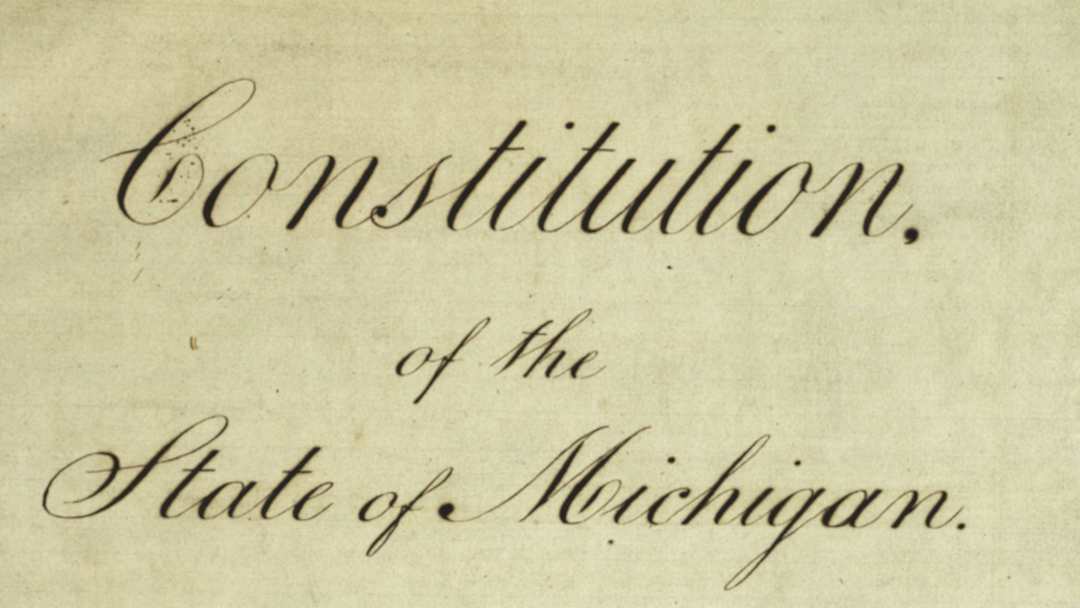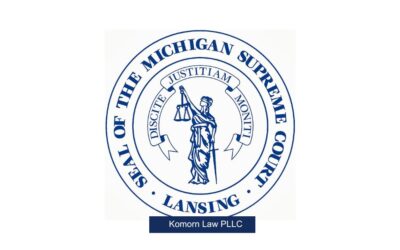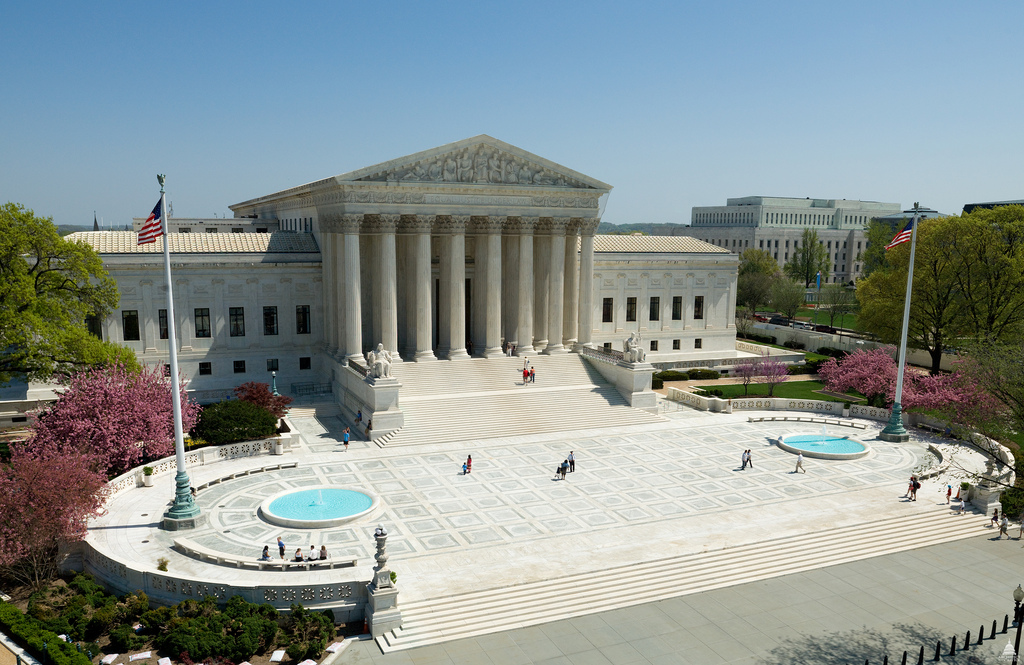These clauses protect property rights and maintain a balance between public needs and individual ownership
The Takings Clauses of the United States and Michigan Constitutions are pivotal components of property law, ensuring that private property is not seized by the government without fair compensation. These clauses protect property rights and maintain a balance between public needs and individual ownership.
United States Constitution: The Fifth Amendment
The Takings Clause is embedded in the Fifth Amendment of the U.S. Constitution, which states, “nor shall private property be taken for public use, without just compensation.” This clause has two primary components: public use and just compensation.
Public Use: The government can only take private property if it is for a public purpose. Historically, this meant projects like highways, schools, or public buildings. However, the interpretation has broadened over time. The landmark case Kelo v. City of New London (2005) expanded public use to include economic development, where the government justified the taking by claiming it would benefit the community economically (Michigan Public).
Just Compensation: The government must provide fair market value for the property taken. This is determined through an appraisal process, though disputes can arise regarding the value. The aim is to ensure the property owner is not financially disadvantaged by the taking.
Michigan Constitution: Article X, Section 2
The Michigan Constitution mirrors the Fifth Amendment’s Takings Clause with some distinct nuances. Article X, Section 2 states, “Private property shall not be taken for public use without just compensation therefor being first made or secured in a manner prescribed by law.”
Public Use: Michigan adheres to the federal standard of public use but has specific state-level interpretations and applications. Following the Hathcock v. Wayne County (2004) decision, Michigan imposed stricter limitations on takings for economic development compared to the broader interpretation allowed by Kelo at the federal level. Hathcock overturned previous rulings that permitted takings for economic development unless the project served a clear public interest, such as addressing blight (Michigan Public).
Just Compensation: Similar to the federal standard, Michigan requires fair market value compensation. The state also provides for additional compensation mechanisms, including potential reimbursement for relocation expenses in certain cases.
Legal and Social Implications
The Takings Clauses aim to protect individuals from the loss of property without proper cause or reimbursement, balancing individual rights with community needs. These clauses ensure that while the government can perform functions beneficial to the public, it cannot arbitrarily or unfairly deprive individuals of their property.
Controversies and Challenges
Broad Interpretation of Public Use: Cases like Kelo have sparked debates on the limits of public use, with critics arguing that broad interpretations can lead to abuse, where private property is taken for private development under the guise of public benefit.
Determination of Just Compensation: Disputes often arise over what constitutes fair market value, with property owners frequently contesting government appraisals.
State vs. Federal Standards: States can impose stricter standards than those set by federal rulings, as seen in Michigan’s response to economic development takings post-Hathcock. This creates a patchwork of interpretations and applications across the country, affecting property rights differently depending on the state.
Recent Developments
The Michigan Supreme Court’s recent ruling in Rafaeli, LLC v. Oakland County emphasized that surplus proceeds from tax-foreclosed property sales should return to former homeowners, underscoring the protection against governmental overreach and unjust enrichment. This ruling aligns with the principles of the Takings Clauses, ensuring fair treatment and compensation for property owners (Michigan Public).
Conclusion
The Takings Clauses of the United States and Michigan Constitutions serve as vital safeguards for property rights, mandating that any governmental taking of private property must be for a public use and with just compensation. These clauses continue to evolve through judicial interpretations and legislative adjustments, reflecting ongoing efforts to balance public interests with private property rights.
Read here:
Legal Counsel and Your Rights
When facing legal challenges, particularly in criminal cases, it is advisable to seek legal counsel immediately.
An experienced attorney can provide guidance on how to navigate interactions with law enforcement while safeguarding your constitutional rights.
Since 1993 our expert legal defense in navigating criminal law matters and protecting your constitutional rights are what we eat for breakfast everyday.
Contact Komorn Law PLLC if you’re ready to fight and win.
Research us and then call us.
More Rights You Should Know

Michigan Supreme Court overturns decision in case it heard at Detroit’s Cass Tech
The Michigan Supreme Court has reversed a state appeals court decision, issuing a ruling Wednesday that a single photo identification of a man suspected of robbing and shooting another man at gunpoint in Detroit wasn't sufficient. It's a case that was argued...

Carjacking is a Federal Offense
Carjacking is a Federal OffenseCarjacking, the act of forcibly stealing an occupied vehicle, has long been a concern for public safety. It was a local and state issue until a series of violent incidents in the early 1990s that carjacking became a federal...
Other Articles
Michigan Supreme Court – People of Michigan v. Duff
A seizure may occur when a police vehicle partially blocks a defendant’s egress if thetotality of the circumstances indicate that a reasonable person would not have felt free to leave In the case of People v Duff (July 26, 2024)., the Michigan Supreme Court issued an...
Michigan Supreme Court – Money back for former homeowners
In a landmark decision, the Michigan Supreme Court has ruled that counties cannot retain surplus proceeds from tax-foreclosed property sales, a move poised to return millions to former homeowners. This ruling, stemming from the case Rafaeli, LLC v. Oakland County,...
Komorn Law Case Victories
Just some of our victoriesState / Federal Legal Defense With extensive experience in criminal legal defense since 1993 from pre-arrest, District, Circuit, Appeals, Supreme and the Federal court systems. KOMORN LAW (248) 357-2550More...6-30-18 United States v Neece -...
Michigan Court of Appeals – Case Summary People v Bosworth
Michigan Court of Appeals - People v. Bosworth Despite these efforts, the jury found the evidence against Bosworth compelling. In the case of People v. Christopher Mychael Bosworth, the Michigan Court of Appeals rendered a decision on July 18, 2024. Bosworth was...
Michigan Court of Appeals – Case Analysis People v. Jackson
Michigan Court of Appeals - People v MICHAEL JACKSON Several critical legal issues emerged during the trial and subsequent appeals process including self defense claim and witness credibility. In a recent decision by the Michigan Court of Appeals dated July 18, 2024,...
Michigan Supreme Court restores wage and sick leave laws
Citizen-initiated proposals aimed at increasing the minimum wage and expanding paid sick leave In a significant ruling, the Michigan Supreme Court has reinstated the original minimum wage and paid sick leave laws that were initially gutted by the legislature in 2018....
SCOTUS Decision Gives Starbucks a Win in Labor Dispute
The decision underscored the principle that only activities that are essential and directly related to an employee's primary job responsibilities are subject to compensation. In a recent decision by the Supreme Court of the United States (SCOTUS), Starbucks received a...
People v. Bosworth – A Murder Conviction and Its Aftermath
Michigan Court of Appeals: People v. Bosworth The case took a dark turn during the early hours of August 3, 2020. Background and Basic Facts On June 15, 2020, Aquae Keyes was tragically murdered. Jakari Robinson, initially arrested for the murder, was later released...













